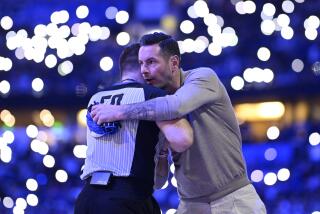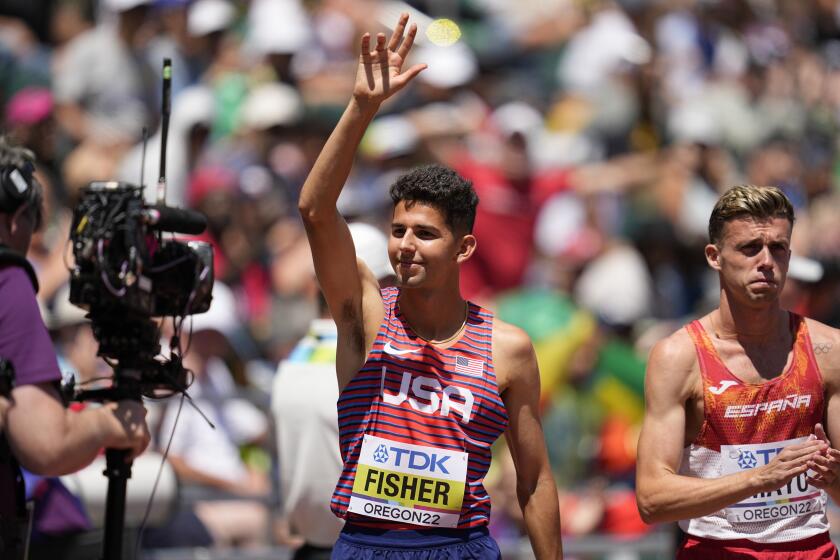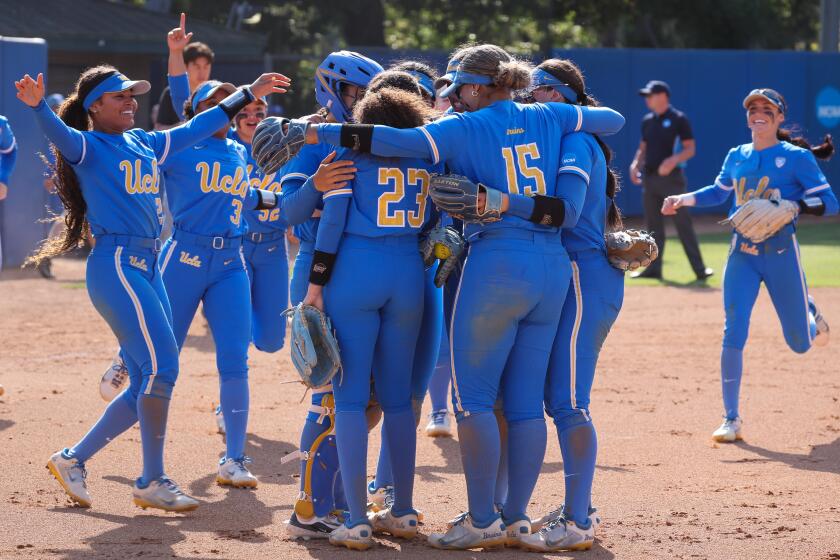Vietnam War’s Casualties Still Being Counted
When I was in New York a while ago, visiting family, I played golf with my brother and a guy named Charlie. They had grown up and gotten into trouble together, and both had gone through years of addiction to drugs. When my brother finally went straight, Charlie was still trying to beat the rap, and my brother had been trying like hell to help.
My brother told me two things about Charlie: He was a Vietnam veteran, and he had just found out he had AIDS.
I watched Charlie as we played. He moved deliberately, as though he were saving his energy for something big that was about to happen but never did. He smoked a lot, and hit a lot of balls into trees but didn’t seem to get too frustrated. Afterward, we had coffee in the clubhouse. Charlie smoked and sipped and said nothing. Even my brother, who has a big mouth, didn’t say much.
The next day I flew to Washington. I hadn’t been there for 10 years, and there was one thing I had to see: the Vietnam Veterans Memorial.
Washington is full of stately buildings and monuments, but this one is something different. There are no marble stairs, no mammoth columns, no pompous words carved forever in imperious stone. There is nothing but a long black wall covered with names.
You walk down a winding path across a wide lawn and then down into the memorial. The wall rises gradually beside you. Pretty soon you are six feet down. You look at the wall, face to face. Row after row of names, buried in black rock, look back. You are buried in names, lost in their possibilities.
Your eyes fix upon one and you imagine a life: a young boy running in a littered street, playing catch, reading a book. The boy grows up, learns to drive, drinks a beer, grows his hair long. He gets drafted, picks up a gun, marches through mud, eats out of a can, makes friends for life, and then, one day, he dies, maybe jumping out of a chopper, splashing through a rice paddy, walking through the jungle, or just standing there, smoking a cigarette and looking around at the trees.
You pick up the pieces and move on. Try not to act stupid or look scared. You walk on, away, and finally you emerge, trembling, alone with the impossible responsibility of life.
At the Vietnam Veterans Memorial, people ran reverent fingers along a lost one’s name, kissed the sunken letters, wept with their heads pressed against the stone. They smiled and leaned against it, posing for photographs; prayed, knelt, squatted and sat before it. The wall accepted everyone, listened to them, absorbed their tears, their touch, the silence of their memories. I thought of the Jews with their ancient wall. Walls must have a great capacity for suffering.
When I returned to New York, my brother told me he had gotten a call the night before from a police precinct in Harlem. They had found a body they were unable to identify, with his phone number in the pants pocket.
It was Charlie. He had scored uptown and died with the needle in his arm. His body had been there since the day we’d played golf.
The Vietnam Veterans Memorial contains the names of those who died “in the order they were taken from us.” Charlie’s death made me realize that the casualties of the war still lie all around us, waiting to be counted. They are still waiting to happen. And that beautiful black wall is missing an awful lot of names.
More to Read
Get our high school sports newsletter
Prep Rally is devoted to the SoCal high school sports experience, bringing you scores, stories and a behind-the-scenes look at what makes prep sports so popular.
You may occasionally receive promotional content from the Los Angeles Times.






